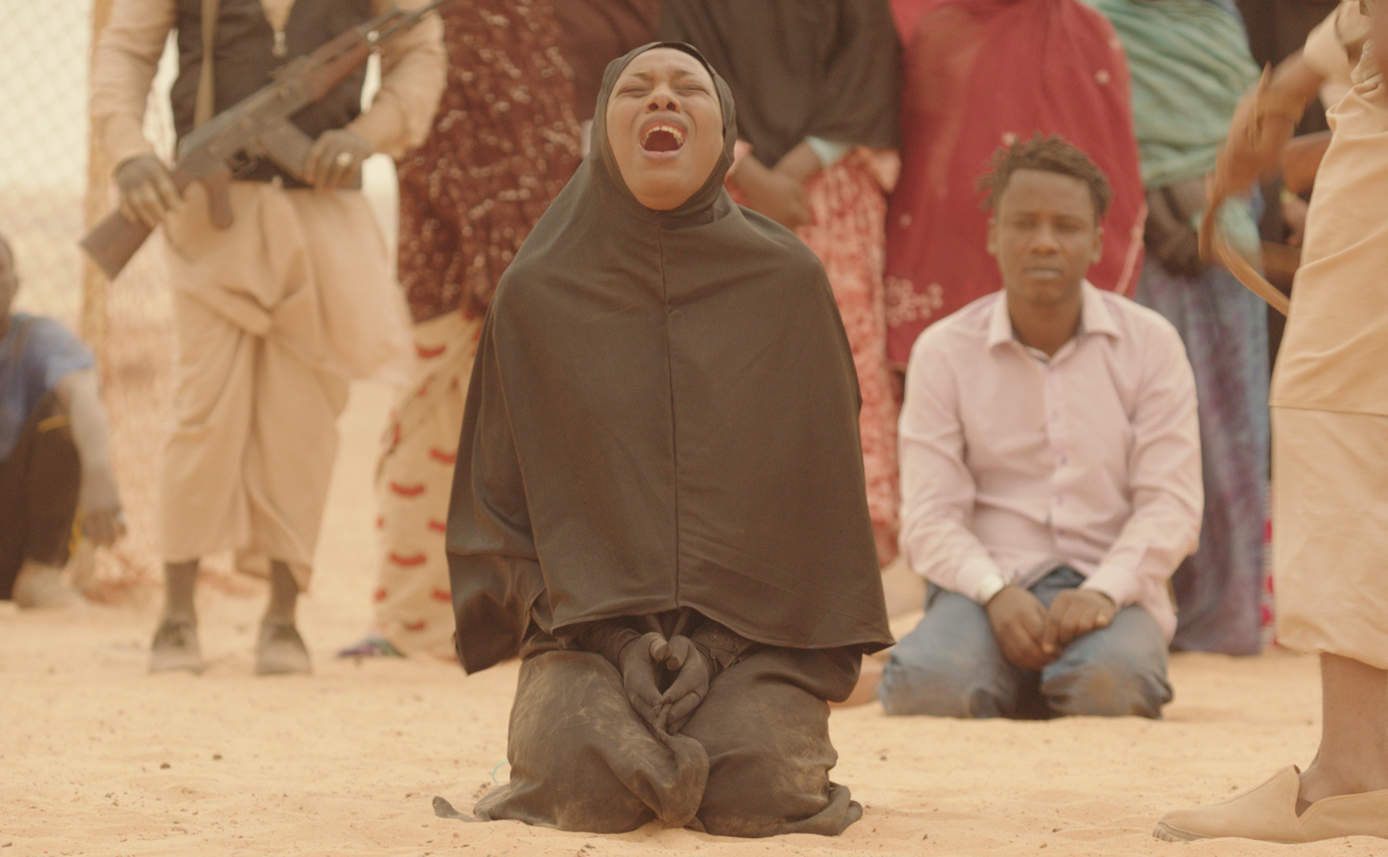
Timbuktu (12A)
dir: Abderrahmane Sissako
One of the sweetest shots in Timbuktu, a film necessarily short on whimsy, shows a football bouncing with a plop-plop-plop down a flight of steps, apparently of its own accord. The ball finds its way on to a near-empty street and into the possession of an armed man, who then inquires of a passer-by whether it belongs to him. The fellow holds up his hands as though denying ownership of an incriminating weapon.
As well he might. The city is in the grip of religious fundamentalists who have added football to the list of activities punishable by public lashing or worse. The one soccer match we see in the film is a hazy affair, halted temporarily by a donkey that plods across the goalmouth. Music replaces the sounds of the players; visibility is compromised by the dust hanging in the air. It feels like a pleasant dream until two men zoom up on a motorbike, their faces obscured by scarves, and circle the pitch once before disappearing. Red cards all round.
The film doesn’t explain anything beyond the bare bones of its central scenario. Characters come and go: a young jihadist dithers when called upon to renounce his old hip-hop life; a driver tries to protect the married woman to whom his boss is making overtures; a hostage is handed from one group of bandits to another with an accompanying bag of medication (“He has two of these in the morning . . .”), which weirdly infantilises him. The writer-director Abderrahmane Sissako trusts that his film’s symbols will resonate, that its ellipses will be suggestive enough to remove the need to spell out what happens next. This is a film in which small pieces stand in for a daunting and horrifying whole.
Learning that a city has fallen to Islamic State or that the Taliban have extended their reach is one thing. What Sissako achieves through the gradual accretion of quotidian detail is a suggestion of what that sort of existence would entail. A biker chugs up and down the streets proclaiming through a loudhailer a new law decreeing that women must wear socks and gloves at all times. An adolescent girl is quizzed about who she was talking to on her mobile phone. Unable to provide an adequate answer, she is dragged off as casually as if she were a stray mutt. When we next see her, she is being proposed as a candidate for marriage. Her mother protests. Very well, comes the reply, she can be taken by force instead.
That Timbuktu is tangential in its horrors rather than harrowing is down to Sissako’s deft screenplay (co-written with Kessen Tall) and Nadia Ben Rachid’s nimble editing. In between the vignettes detailing everyday persecution is the story of Kidane (played by Ibrahim Ahmed, aka “Pino”), who has avoided trouble by remaining with his family in their encampment in the sand dunes. Here the jihadists tend not to venture – apart from those carrying out target practice on stolen and presumably priceless statues. There isn’t much violence in the film but the damage wreaked on those objects – a breast obliterated, limbs lopped off, a gaping mouth left smoking from gunfire – serves as a terrible surrogate.
The time comes when Kidane is forced to enter the city. His beloved cow has been slaughtered and he must confront the man who did it. The dotty gag of the cow’s name (GPS) turns sour when Kidane loses his own way, morally speaking, and finds himself at the mercy of the higgledy-piggledy court dishing out arbitrary punishments. One of the town’s leaders looks on and asks the jihadists: “Where is God in all this?”
His question echoes through the picture. Interpreters litter the scenes, helping the townspeople and the jihadists grope their way to some common meaning across fragments of French, English and the various Tuareg languages. But there is never the sense that they really understand one another. Kidane has given up on earthly justice; he trusts that God will know what is right and tells his wife with a shrug: “All of this will end one day.” Fading to black provocatively in the final scene, Sissako vehemently resists this interpretation. He withholds closure and saddles us with the sensation that the action of the film is still going on – which, of course, it is.





